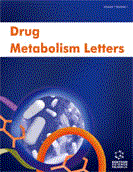Abstract
Background/Aims: Genipin is a component of Japanese traditional herbal medicine (Kampo), inchinkoto, and is used for the treatment of various liver injuries. However, there are few scientific evidence for its anti-inflammatory effects and mechanisms. In inflamed liver, proinflammatory cytokines including tumor necrosis factor (TNF)-α and interleukin (IL)-1β stimulate liver cells, followed by the expression of inducible nitric oxide synthase (iNOS). Excessive levels of NO produced by iNOS have been implicated as one of the factors in liver injury. Thus it is essential to inhibit iNOS induction for the prevention of liver injury. In this study, we examined IL-1β-stimulated hepatocytes as a simple “in vitro liver injury model” to investigate liver protective effects of genipin.
Methods: Primary cultured rat hepatocytes were treated with IL-1β in the presence or absence of genipin. The induction of NO production and iNOS, and its signaling pathway were analyzed. Results: In IL-1β-stimulated hepatocytes, genipin inhibited the production of NO dose- and timedependently, and reduced the levels of iNOS protein and its mRNA expression. Genipin also reduced mRNA expressions of TNF-α and IL-6. Genipin inhibited two essential signaling pathways for iNOS induction, IκB degradation/NF-κB activation and type I IL-1 receptor upregulation. Transfection experiments revealed that genipin decreased the expression of iNOS mRNA through both inhibitions of the promoter activation and mRNA stabilization. Delayed administration of genipin after IL-1β addition also inhibited iNOS induction. Conclusion: Genipin influenced the induction of inflammatory mediators, iNOS and TNF-α, in part through the inhibition of NF-κB activation in hepatocytes. Genipin may have therapeutic potential for organ injuries including liver.Keywords: Genipin, inducible nitric oxide synthase, nuclear factor- κB, primary cultured hepatocytes, tumor necrosis factor-α, type I interleukin-1 receptor.
Graphical Abstract
 32
32 1
1














